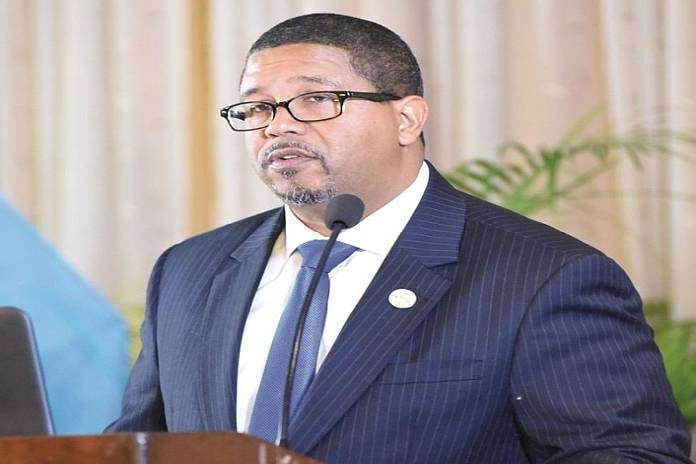By Paige McCartney
NASSAU, Bahamas — Deputy prime minister Peter Turnquest announced that the government of The Bahamas has lost at least 70 percent of its revenue during the period since emergency lockdown measures were implemented to stop the spread of COVID-19.
“For March up to now, we’ve had at least 70 percent lost … because everything has stopped. We’re hoping that we will see some VAT (Value-Added Tax) revenue this month,” he said. And I know that there are persons who are having difficulty with respect to being able to file because of the lockdown. We’re asking them to continue with the filing, using estimations if that is the best that they can do and they can make amendments to the filings later on without any penalty. But we do need the revenue.”
Despite the extraordinary circumstances due to the lockdown, Turnquest said there will be no extensions for VAT filings for March.
“Most small businesses, in particular, are using Quickbooks as their accounting software, which they should be able to access online, but for those who are unable to do that, then based upon their business flows and based upon their history they ought to be able to make some estimations about what their VAT filings should be,” he said.
“And while we understand and appreciate that it may not be accurate, that’s fine, but we want them to make a good faith estimate and file and once we are open for business again, they can go and make the adjustments and we can make that happen without any penalties to them.”
With tourism – the country’s main economic driver – not producing any revenue, Turnquest said, VAT revenue is essential until the government can reopen the economy, which he said is being considered in a very strategic way.
“That is our focus now. I know there have been people who have suggested that we ought to be stimulating the economy now. The reality is, if we were to inject stimulus into the economy right now, it would be of limited benefit because the fact is that businesses cannot operate in this current lockdown environment. What is important is to ensure that we provide the bridge between now and the time of the reopening of the economy, such that people can survive during this period, both entities as well as individuals,” he said.
“And to have enough resources left to stimulate the economy in a real way once we are able to go back to work. So that’s what we’re focusing on at the moment with our private sector stakeholders, academics and all of the rest to try and find a clear path, a sensible and practical path.”
Republished with permission of the Nassau Guardian





